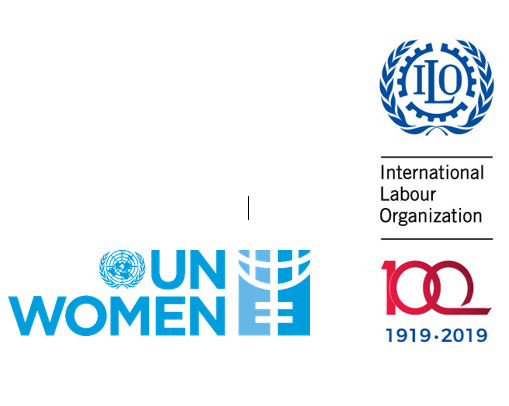Globally, half of all workers today work in the informal economy.[1] Emerging and developing countries represent 82 per cent of world employment, and 93 per cent of the world’s informal employment is found in these countries (ILO, 2018e). In some regions and countries, informal work is carried out by a disproportionate female workforce. For instance, “women are indeed more exposed to informal employment in more than 90 per cent of sub-Saharan African countries, 89 per cent of countries from Southern Asia and almost 75 per cent of Latin American countries” (ILO, 2018e, p. 21). Furthermore, “women in the informal economy are more often found in the most vulnerable situations, for instance as domestic workers, home-based workers or contributing family workers, than their male counterparts” (ILO, 2018e, p. 21).
The ILO Transition from the Informal to the Formal Economy Recommendation, 2015 (No. 204) provides that “members should ensure that an integrated policy framework to facilitate the transition to the formal economy is included in national development strategies or plans” (ILO, 2015b, para. 10), which should address, among other areas, “the promotion of equality and the elimination of all forms of discrimination and violence, including gender-based violence, at the workplace” (ILO, 2015b, para. 11(f)).
In order to ensure that women’s voice and concerns are heard, particularly in work environments where they face discrimination and violence, a number of strategies have been adopted by unions and women’s organizations (UN Women 2015b). These include establishing representative participation of women in leadership or coordination positions, creating specific gender-focused training programmes, and setting up gender forums or committees within the informal economy.
Workers’ organizations are also promoting rights of workers in the informal economy, which can reduce situations of vulnerability to violence and harassment. For example, the Trade Union Confederation of the Americas (TUCA) adopted Resolution No. 9 “Workers in precarious and informal situations” at its 3rd Congress in 2016, which ratified its commitment to promote the extension of rights to informal economy workers, especially women, young people, Afro-descendants and migrant workers (Trade Union Confederation of the Americas and ITUC, 2016). Other examples include the Self-Employed Women’s Association (SEWA) which supports members in negotiations with employers to improve working conditions,[2] including ending violence against workers who face many risks working as street vendors, market sellers and home-based workers. The global network of Women in Informal Employment Globalizing and Organizing (WIEGO), has helped raise awareness of occupational safety and health risks amongst market traders and amongst women workers in markets including in Accra, Ghana (Women in Informal Employment, Undated).
[1] The informal economy includes unregistered and unrecognised enterprises, workers who are in precarious circumstances and includes own-account workers, contributing family workers, members of informal producers’ cooperatives, employees holding informal jobs etc.
[2] SEWA is a member of two global unions IUF and IndustriALL and in 2006, it became an affiliate to the ICFTU (now ITUC).
